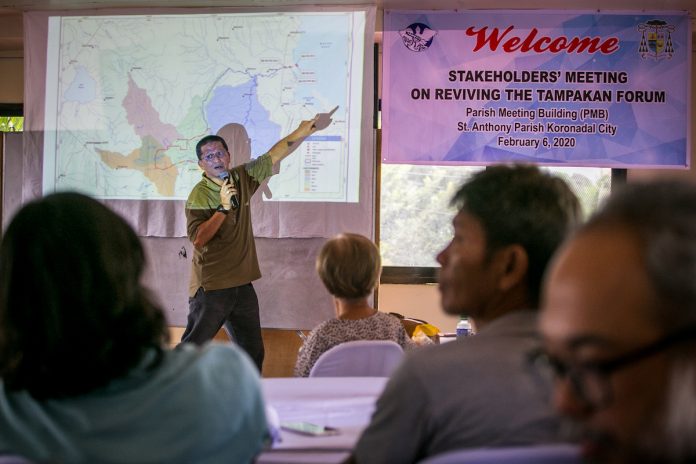Catholic dioceses in Mindanao revived a movement against the continuous operation of large-scale mining operations in the southern Philippine region.
More than 50 environmental activist groups, tribal communities, and ecumenical movements joined the drive, backed by four Mindanao dioceses, on Feb. 7.
Bishop Cerilo Allan Casicas of Marbel said the anti-mining campaign in his province has gained “a lot of victories”, but stressed the need to revitalize the movement.
“Mining projects continue to threaten us,” he said during the revival of the “Tampakan Forum,” first organized in 2011 by the diocese’s social action center to support communities affected by mining.
“We were able to put the project on hold for 25 years,” said Rene Calmerin Pamplona, executive director of the Convergence of Initiatives for Environmental Justice.
He added the they will continue to oppose destructive mining until the government revokes agreements with mining companies.
On March 22, 1995, the Philippine government entered into a financial and technical assistance agreement (FTAA) with a mining company in Mindanao for US$5 billion.
The FTAA, which is set to expire on March 22, 2020, was awarded a 12-year extension by the Mines and Geosciences Bureau of the Department of Environment and Natural Resources last year.
Jaybee Garganera, national coordinator of the Alliance to Stop Mining, said at least a thousand tribal families will be displaced if the project is implemented.
He said the mining project has no “climate change impact assessment” and lacks studies on the impact of “human-induced ground movement.”
Studies done by the alliance noted that at least 32 percent of agricultural lands and 75 percent of forested areas in the provinces of South Cotabato, Sultan Kudarat, Saranggani, and Davao del Sur will be affected.
“It will flatten the mountains and pollute all the watersheds in the region,” he said.
“Even God will not approve of this project,” said Bishop Casicas, who called on the government to reconsider its decision to grant a 12-year extension to the Tampakan Project.
The Tampakan copper-gold mine in Mindanao is the largest undeveloped copper-gold resource in Southeast Asia. It is the single largest foreign direct investment in the Philippines.
The project was granted an environmental compliance certificate by the government in February 2013, even as the South Cotabato province had banned open-pit mining in the Tampakan region.
Bishop Casicas said at least 10,000 farmers will be affected and 20,000 hectares of prime agricultural lands will be destroyed.









